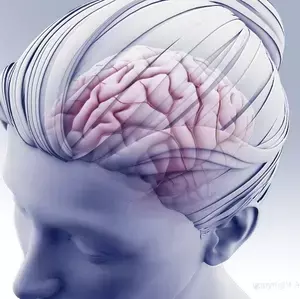- Home
- Medical news & Guidelines
- Anesthesiology
- Cardiology and CTVS
- Critical Care
- Dentistry
- Dermatology
- Diabetes and Endocrinology
- ENT
- Gastroenterology
- Medicine
- Nephrology
- Neurology
- Obstretics-Gynaecology
- Oncology
- Ophthalmology
- Orthopaedics
- Pediatrics-Neonatology
- Psychiatry
- Pulmonology
- Radiology
- Surgery
- Urology
- Laboratory Medicine
- Diet
- Nursing
- Paramedical
- Physiotherapy
- Health news
- Fact Check
- Bone Health Fact Check
- Brain Health Fact Check
- Cancer Related Fact Check
- Child Care Fact Check
- Dental and oral health fact check
- Diabetes and metabolic health fact check
- Diet and Nutrition Fact Check
- Eye and ENT Care Fact Check
- Fitness fact check
- Gut health fact check
- Heart health fact check
- Kidney health fact check
- Medical education fact check
- Men's health fact check
- Respiratory fact check
- Skin and hair care fact check
- Vaccine and Immunization fact check
- Women's health fact check
- AYUSH
- State News
- Andaman and Nicobar Islands
- Andhra Pradesh
- Arunachal Pradesh
- Assam
- Bihar
- Chandigarh
- Chattisgarh
- Dadra and Nagar Haveli
- Daman and Diu
- Delhi
- Goa
- Gujarat
- Haryana
- Himachal Pradesh
- Jammu & Kashmir
- Jharkhand
- Karnataka
- Kerala
- Ladakh
- Lakshadweep
- Madhya Pradesh
- Maharashtra
- Manipur
- Meghalaya
- Mizoram
- Nagaland
- Odisha
- Puducherry
- Punjab
- Rajasthan
- Sikkim
- Tamil Nadu
- Telangana
- Tripura
- Uttar Pradesh
- Uttrakhand
- West Bengal
- Medical Education
- Industry
Neural pathways connecting gut and brain linked to common gut disorders

PITTSBURGH -Different systems of the body are interconnected and cannot be completely understood in isolation. The brain-gut connection is one very important example of this phenomenon.
Gut and brain are connected physically through millions of nerves, most importantly the vagus nerve. The gut and gut microbiota also control inflammation and make many different compounds that can affect brain health.
Neuroscientists at the University of Pittsburgh Brain Institute have traced neural pathways that connect the brain to the stomach, providing a biological mechanism to explain how stress can foster ulcer development.
The findings, published this week in the Proceedings of the National Academy of Sciences, build a scientific basis for the brain's influence over organ function and emphasize the importance of the brain-body connection.
Until now, research exploring the gut-brain interaction has largely focused on the influence of the gut and its microbiome on the brain. But it's not a one-way street -- the brain also influences stomach function.
"Pavlov demonstrated many years ago that the central nervous system uses environmental signals and past experience to generate anticipatory responses that promote efficient digestion," said Peter Strick, Ph.D., Brain Institute scientific director and chair of neurobiology at Pitt. "And we have long known that every increase in unemployment and its associated stress is accompanied by an increase in death rates from stomach ulcers."
To find brain regions that control the gut, Strick and his coauthor David Levinthal, M.D., Ph.D., assistant professor of gastroenterology, hepatology and nutrition at Pitt, used a strain of rabies virus to track connections from the brain to the stomach.
After being injected into the stomach of a rat, the viral tracer made its way back to the brain by hopping from neuron to neuron -- using the same trick that rabies virus uses to infiltrate the brain after entering the body through a bite or scratch -- to reveal the brain areas that exert control over the stomach.
Strick and Levinthal found that the parasympathetic -- "rest and digest" -- nervous system pathways trace back from the stomach mostly to a brain region known as the rostral insula, which is responsible for visceral sensation and emotion regulation.
"The stomach sends sensory information to the cortex, which sends instructions back to the gut," Strick said. "That means our 'gut feelings' are constructed not only from signals derived from the stomach, but also from all the other influences on the rostral insula, such as past experiences and contextual knowledge."
In contrast, the sympathetic -- "fight or flight" -- pathways of the central nervous system, which kick in when we're stressed, predominantly trace back from the stomach to the primary motor cortex, which is the seat of voluntary control over the skeletal muscles that move the body around.
Identifying these neural pathways that connect the brain and stomach could provide new insights into common gut disorders.
For example, Helicobacter pylori infection typically triggers ulcer formation, but descending signals from the cerebral cortex could influence the bacteria's growth by adjusting gastric secretions to make the stomach more or less hospitable to invaders.
These insights also could change clinical gastroenterology practice. Knowing that the brain exerts physical control over the gut gives doctors a new way to approach bowel problems.
"Several common gut disorders, such as dyspepsia or irritable bowel syndrome, might not get better with current treatments," said Levinthal, who also is a gastroenterologist at UPMC. "Our results provide cortical targets that will be critical for developing new brain-based therapies that might be helpful for our patients."
For further reference log on to:
https://www.upmc.com/media/news/051820-pnas-brain-to-stomach
Hina Zahid Joined Medical Dialogue in 2017 with a passion to work as a Reporter. She coordinates with various national and international journals and association and covers all the stories related to Medical guidelines, Medical Journals, rare medical surgeries as well as all the updates in the medical field. Email: editorial@medicaldialogues.in. Contact no. 011-43720751
Dr Kamal Kant Kohli-MBBS, DTCD- a chest specialist with more than 30 years of practice and a flair for writing clinical articles, Dr Kamal Kant Kohli joined Medical Dialogues as a Chief Editor of Medical News. Besides writing articles, as an editor, he proofreads and verifies all the medical content published on Medical Dialogues including those coming from journals, studies,medical conferences,guidelines etc. Email: drkohli@medicaldialogues.in. Contact no. 011-43720751


